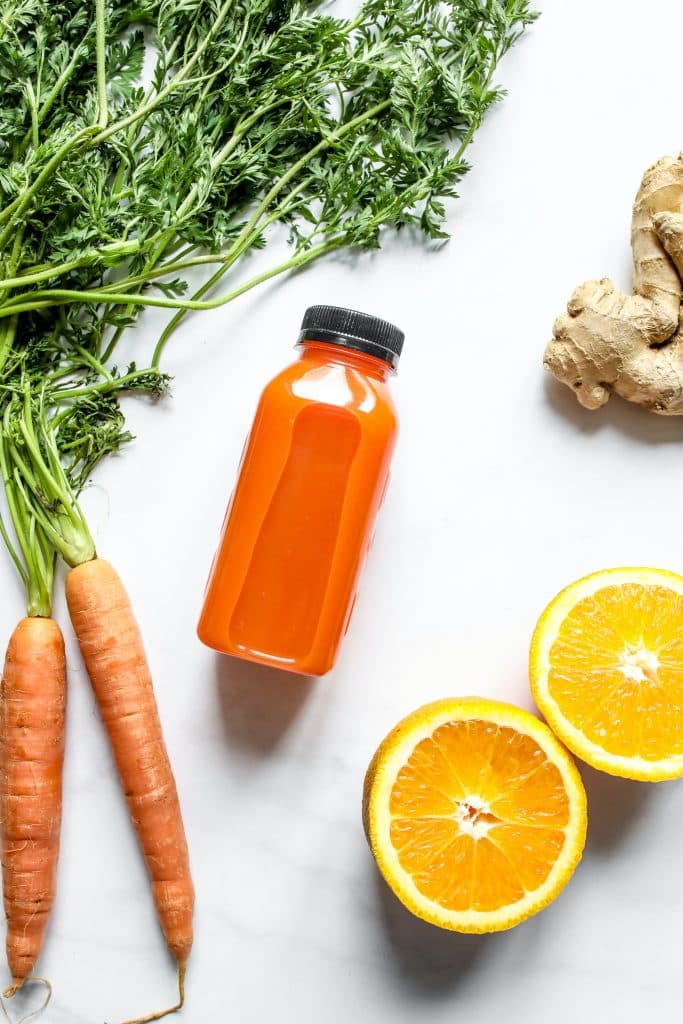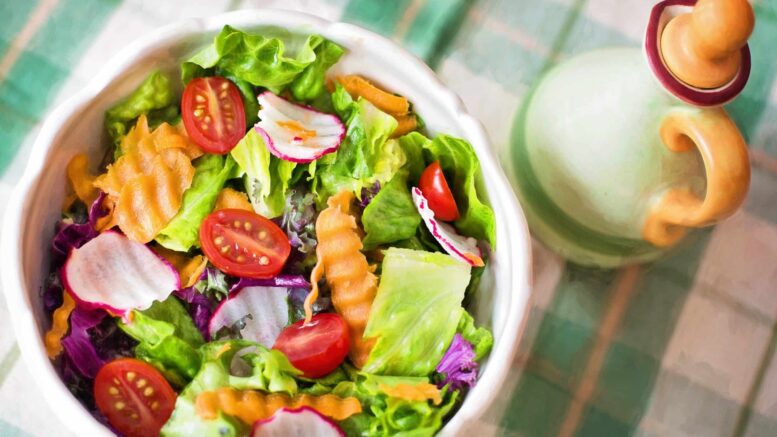Benefits of a Vegan Diet
What is a vegan diet?
A vegan diet is composed of plant-based food, completely excluding animal products like meat, fish, shellfish, dairy, and eggs.
It is growing in popularity lately and there’s a whole trend to follow a vegan diet in the younger population nowadays.
According to New Food Magazine, by the summer of 2020, plant-based food sales more than doubled (+243 percent), 4 with consumers putting 14 percent more meat-free and dairy-free options in their baskets.
We might have heard about the benefits of it, as eating vegetables and fruits in moderation can never be bad for health.
According to Registered Dietitian, co-author of the book “Becoming Vegan: Express Edition” Branda Davis– “Whether you are looking to switch to a vegan diet out of compassion for animals, or to reduce your risk of degenerative disease, lose weight, or get rid of pre-existing health problems, you can be assured that you are on the right track”.
There is more and more evidence that a completely animal-free vegan diet can help prevent many chronic diseases.
What are the health benefits of a vegan diet?
Let’s discuss how a plant-based diet affects our different organ systems.
1. Is a vegan diet good for your heart?
Cardiovascular disease is one of the leading causes of mortality and low quality of life not only in the United States but all around the world.
When talking about heart and blood vessel problems, dietary changes are the mainstay of treatment and prevention.
Obesity and consumption of food with high-fat content are some of the main causes of hyperlipidemia, which itself increases the risk of atherosclerotic(lipid plaque buildup) changes, and progresses into feared complications like heart attack, stroke, peripheral vascular disease, and hypertension.
What we know for sure is that following a low-fat high in fiber diet protects us from LDL (Lowe density lipoprotein)- so-called “bad cholesterol”. There are some vegans food that can lower those lipids in our bodies:
Soy – according to analyses, 25 grams of soy protein per day can lower LDL by 5% to 6%
Fruits – Apple, strawberries, pears, oranges, etc. – that contain a lot of soluble fiber – pectin, which can reduce body LDL levels
Oats – are a great source of soluble fiber. Starting a day with one bowl of oats can lower bad cholesterol levels by 5-8%.
Beans – contain a bunch of healthy nutrients, like folate, antioxidants, and magnesium, that can help control blood pressure and prevent LDL build-up. Over 10 000 people were tested in the epidemiological study to prove that legumes can lower the risk of coronary heart disease.
Nuts – It contains plant sterols that compete with cholesterol for absorption. A study states that consuming nuts regularly can have preventive effects for heart diseases.
Vegetable oil – Using sunflower or canola oil instead of butter while cooking can have a significant impact on defending our blood vessels from “bad cholesterol”
2. Does a vegan diet reverse heart disease?
We have already discussed how a vegan diet can be beneficial for the heart and vessels to prevent diseases, but what does it do for already existing ones?
“Can Plant-based Diet Reverse Cardiovascular disease?” This idea has been circulating since the study performed by doctor Dr.Esselstyn, the author of “Prevent and Reverse Heart Disease (2007)”, in which he argued that a low-fat, whole-food, plant-based diet that avoids all animal products and oils has revering effect on heart diseases.
But, the study sample was too small and had quite a lot of biases to be scientifically accurate.
So can a vegan diet reverse heart disease?
Researchers with the Physicians Committee for Responsible Medicine looked at multiple clinical trials and observational studies and found a strong association that plant-based diets can prevent and reverse atherosclerosis and decrease other markers of cardiovascular disease (CVD) risk, including blood pressure, blood lipids, and weight gain.

benefits of a vegan diet – can a vegan diet reverse heart disease
There are quite a lot of studies about plant-based proteins having preventive effects on cardiovascular health.
For example, this cohort study JAMA Intern Med. 2020, consisting of over 400,000 people, concludes that greater dietary plant protein intake was associated with approximately 12% reduction of overall heart disease mortality in both sexes.
According to the ACA (American College of Cardiology), to prevent Cardiovascular disease mortality, we need to avoid – sugar, low-calorie sweeteners, high carbohydrate foods, refined grains, trans fat, saturated fat, sodium, red meat, and processed red meat.
All adults should consume a healthy plant-based or Mediterranean-Like diet high in vegetables, fruits, and nuts.
A vegan diet might be considered healthy for our organism, but we should keep in mind that too much-saturated fat, carbohydrates, and salt is harmful to our health, no matter what the source is.
In a nutshell, to prevent heart disease, you should follow a HEALTHY vegan diet, low in fats.
3. Does a vegan diet lower blood pressure?
Hypertension is a common and insidious killer.
A lot of studies concluded that people on a healthy vegan diet have lower systolic and diastolic pressure.
According to Pubmed research, there are a lot of mechanisms proposed by which plant-based nutrition leads to a decrease in blood pressure.
They include improved vasodilation, greater antioxidant content and anti-inflammatory effects, improved insulin sensitivity, decreased blood viscosity, altered baroreceptors modifications in both the renin-angiotensin and sympathetic nervous systems, and modification of the gut microbiota.
All the effects mentioned have a positive impact on blood vessels and kidneys.
So you should feel free to switch to vegetables and fruits to control your blood pressure.
4. Does vegan diet help with diabetes?
It is scientifically proven that for people with or at risk for diabetes, eating healthy and maintaining a healthy weight can prevent or delay the onset of diabetes. Besides that, it prevents complications like kidney, eye, and heart problems.
It’s extremely important to stay in shape and control weight for diabetes. A vegan diet that has a lot of fiber contributes to those effects quite well.
In general, diabetics should follow a low-calorie, low-carb, low-fat diet mostly.
The fact that plant-based diets are mostly low in calories is good for maintaining a healthy weight.
Also, consuming fruits in moderation is safe and beneficial for blood sugar control for various reasons.
What are the results of different studies conducted about the effects of a vegan diet on diabetes?
As the PubMed study concludes, “ 44% of the studies proposed that a dietary pattern excluding foods of animal origin is likely to have beneficial effects on glucose metabolism in individuals with Type 2 Diabetes and overweight/obesity; however specific changes in glycemic profile were not consistent among the studies.
Improvement in glycemic control can presumably be explained by a reduction in excess body weight as a consequence of the reduced content of fat and energy in a plant-based diet compared to an omnivorous diet.
It’s also interesting to note that several prospective studies reported that the prevalence of T2DM was 46%–76% lower in vegans and vegetarians compared to omnivores.
Does a vegan diet reverse diabetes?
In the case of type 1 diabetes, that would be impossible to reverse the process by diet, as insulin-producing pancreatic cells are already damaged, but in the case of type 2 diabetes or the prediabetic stage, a healthy plant-based diet can increase insulin sensitivity and help in weight control which in turn might even reverse the process.
5. Does a vegan diet help arthritis?
Arthritis is a painful inflammation of joints that can be caused by a variety of diseases. The pain and immobility can be discomforting, making patients seek all types of management.
There are some good things a vegan diet can do for arthritis but there are also some drawbacks.
To be more clear, a plant-based diet is rich in antioxidants – nutrients that decrease the level of inflammation and also lacks inflammation-triggering foods like dairy processes meat, and so on.
In a 2015 study published in Complementary Therapies in Medicine, 600 participants followed a vegan diet for three weeks which significantly reduced C-reactive protein (CRP), a key marker for acute and chronic inflammation.
Another reason how a vegan diet can have a good impact on joint pain, stiffness, and swelling is a dietary fiber found in these plant-based foods that can improve gut bacteria composition and increase bacterial diversity, as was proved for Rheumatoid Arthritis patients, thus reducing their inflammation and joint pain.
Vegan vegetable oils have anti-inflammatory properties, which can alleviate joint inflammation. According to Rheumatologist Emily Larson “Extra virgin olive oil helps reduce inflammation and can have a similar effect to ibuprofen”.
If the arthritis is caused by Gout – uric acid crystal deposition disease, in that case, a vegan diet can be a savior for the patient since one of the main causes of this gout attack is the consumption of Purine-rich foods like red meat and seafood.
On the other side, a vegan diet is proven to lower bone density and increase the risk of bone fractures because of the lack of Calcium and Vitamin D in the diet, so it’s often mandatory to receive these nutrients from other sources.
6. Does a vegan diet reduce cancer risk?
Yes! Positive to say vegan diet can reduce cancer risk and I will tell you why:
1. Antioxidants – our protectors
Vegans consume fruits and vegetables, which are loaded with antioxidants like Vitamin C, E, selenium, carotenes, lycopene, etc.
Antioxidants are little magicians that can prevent or slow damage to cells and reduce inflammation.
They are also called “free radical scavengers” Free radicals are toxins that can be hazardous to all parts of the cells, especially DNA, which can later progress to cancer. Thus, these toxins should be removed from the body by antioxidants.
By following the plant-based diet, you receive a lot of these toxin-neutralizing nutrients.

benefits of a vegan diet – does a vegan diet reduce the cancer risk?
2) Animal products contain carcinogens – nitrates and nitrites
Did you know that one of the most important risk factors for the development of gastric cancer is consuming a lot of nitrates?
They are used to keep processed meat fresh for longer and are proven carcinogens that have a horrible effect on our Gastrointestinal tract.
3) Fiber
Colon cancer is quite common in the older population of men. Chronic constipation and consumption of food low in fiber are one of the most significant factors that progress to cancer.
A vegan diet is full of high-fiber foods. Thus, it prevents all these complications.
Besides that, studies have shown that women consuming 6 g or more of soluble fiber a day (the equivalent of a cup of black beans) had a 62% risk reduction of breast cancer compared to those consuming less than 4 g.
4) Grill in moderation!
Do you like grilled meat? Well, next time, you will think twice before enjoying the barbeque gathering. Grilling meats release carcinogens like Heterocyclic amines(HCAs), one of them is PhIP – which is associated with an increased risk of colorectal cancer. So say goodbyes to sausage.
Processed food like sausage, bacon, and hot dogs is a major contributor to colorectal and gastric cancer.
WHO (World health organization) even classified processed foods as Group 1 carcinogens!
5) The red meat
Haem – a red pigment that gives meat its color, can increase gastric and bowel cancer risk. According to a study, ingestion of heme from meat can catalyze the formation of toxins like lipid peroxidation products (LPOs) in the digestive tract.
Many of these chemicals form DNA adducts, some of which can induce mutations and initiate carcinogenesis.
In short, to prevent any Gastrointestinal or other cancers – make sure to abstain from red processed meat and consume more high-fiber plant-based food.
7. Does vegan diet help with allergies?
Whoever experiences allergies knows how annoying it might get. Irritating symptoms and the fact that you have to be cautious around all the potential triggers can be bothersome.
Allergy is a hypersensitivity reaction to harmless substances. In response to an allergen, the immune system is activated, causing inflammation, which leads to disorders like asthma, rhinitis, conjunctivitis, utopia, urticaria, diarrhea, angioedema, and in severe cases – anaphylactic shock.
Can switching to vegan diet help allergies?
I can tell you with confidence – Yes! Vegan food helps with allergies
Dr.Joel Kahn, a physician who focuses on a Vegan diet in integrative medicine states that “Poor quality American diet rich with meats, processed meat, cheese, dairy can all cause chronic inflammation. “
We can even call the vegan diet a perfect anti-inflammatory diet.
How does eating mostly vegetables and fruits act on allergies, you might ask?
To get in a little more depth, here are reasons why a Plant-based diet helps with allergies.
1. High antioxidants = Low inflammation in the body
As we already mentioned vegan diet is rich in all different kinds of antioxidants that reduce risk and degree of inflammation, which can benefit anyone with hypersensitivity reactions
2. High Fiber = Low inflammation in Gut
If you have any food allergy you need extra attention for the healthy gut lining and alleviating allergy reactions, which can be done with a lot of fibers from vegetables and fruits
3. No dairy – No problem
Dairy products might seem innocent. In fact, they a lot of times are triggers for inflammations, and it’s quite common for people to have dairy allergies.
4. Increased body weight = higher risk for asthma
One of the advantages of vegan diets is that weight control becomes easier and it benefits those with asthma, as obesity is proven to be linked to asthma attacks and mortality
8. Does a vegan diet cause bloating?
Now is the time to mention some disadvantages a plant-based diet can have.
Feeling fullness, cramps, and gas after a meal is signs of bloating. The most common triggers for bloating are high-fiber foods from a vegan diet, like apples, beans, onions, peaches, broccoli, cabbage, and so on.
A plant-based diet can cause bloating but there are some things you can do to prevent or alleviate the symptoms.
Eat-in moderation
Even though vegetables and fruits are healthy foods, they are high in fiber. Fibers are digested by gut bacteria that create gas in our gastrointestinal tract. Those gases make us bloat
Don’t Eat quickly or Talk during a meal.
Both of these can cause gas buildup in your belly because you swallow air in the process. So make sure to slow down chewing and enjoy the meal.
Avoid drinking carbonated beverages
sodas, beers, sparkling water – the bubbles are gases that can puff up in your stomach and cause bloating.
9. Does a Vegan diet slow aging?
Many say that a plant-based diet is a secret to anti-aging. We can’t stop the aging process but we can slow it down by protecting our cells.
The anti-aging properties of a vegan diet are demonstrated in research by the University of Michigan, where the telomere length of people on a vegan diet was assessed.
The telomere is an end part of a chromosome consisting of non-coding DNA. It’s the best indicator of aging. As we age, telomeres shorten in size.
The trial was composed of 5000 healthy adults who were on different types of plant-based diets, and they were assessed by diet quality indices, those who had higher scores had longer telomere health.
In conclusion
Avoiding all animal and dairy products seems to have beneficial effects on health, most notably in the prevention of carcinogenesis.
Today, many doctors themselves recommend a vegetarian or vegan diet as an aid in many diseases and for their prevention.
Remember that you can only benefit from a vegan diet if you consume healthy foods and not those high in saturated fats, pastry, and unhealthy oils.
References:
https://pubmed.ncbi.nlm.nih.gov/
https://www.ncbi.nlm.nih.gov/pmc/articles/
https://www.ncbi.nlm.nih.gov/pmc/
https://scienceblog.cancerresearchuk.org/
https://pubmed.ncbi.nlm.nih.gov/
https://pubmed.ncbi.nlm.nih.gov/
https://www.ncbi.nlm.nih.gov/pmc/articles/
https://www.sciencedaily.com/releases/
https://pubmed.ncbi.nlm.nih.gov/
https://www.ncbi.nlm.nih.gov/pmc/
https://www.ncbi.nlm.nih.gov/pmc/articles/
See Also

As a nutritionist, I research, find and experiment with recipes, natural diets and meal plans for weight loss, bodybuilding, and detoxing.
